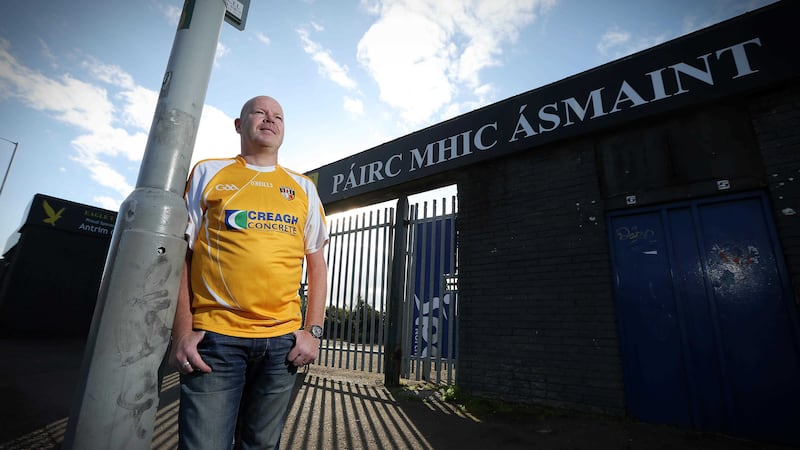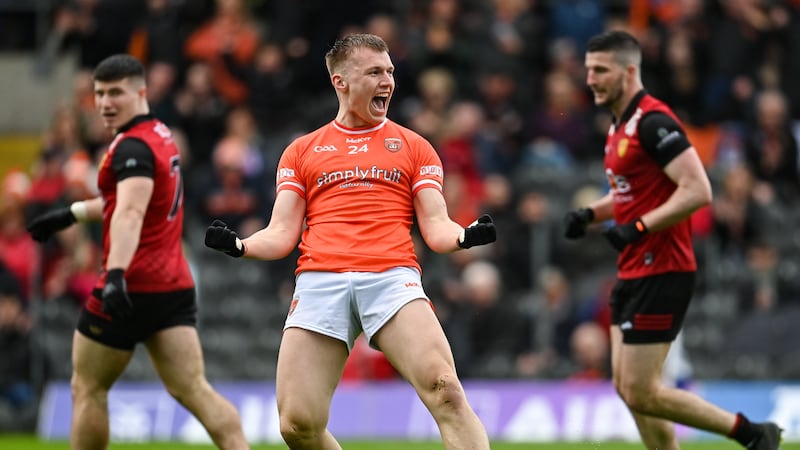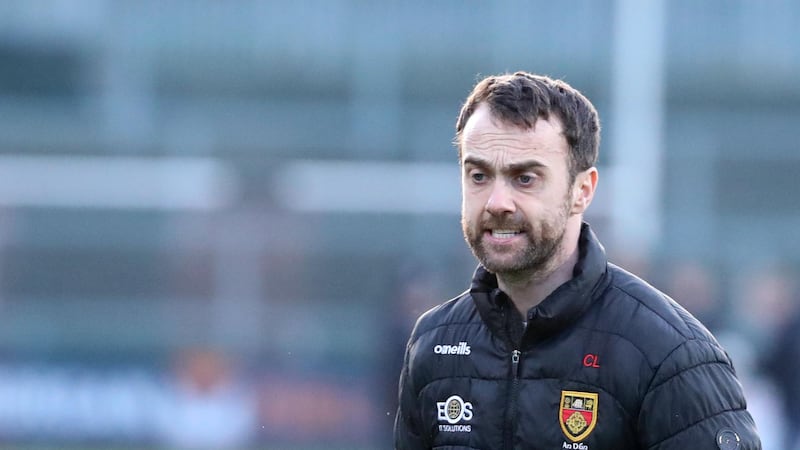THE diagnosis came "totally out of the blue" for former Antrim football captain Anto Finnegan.
After he had been attending hospital complaining of shoulder problems for a number of years, a doctor sent him to neurology.
In August 2012, it was confirmed: Finnegan had motor neurone disease.
"You could probably guess that it took the legs out from under us and it took us a very long time to try and come to terms with it," said Finnegan, who has taken the decision to make his condition public because he feels more awareness of motor neurone disease is needed.
"So at that time it was probably disbelief more than anything and then obviously once we started reading into it and understanding what the actual standard prognosis was - which is two to five years - and when we read how the condition affects people, all that stuff was very hard to take."
Since the diagnosis, as he and his wife Allison have continued to digest the news, Finnegan revealed his condition to a few close friends and immediate family, but only felt the time was right for their two children to know in recent months.
From very early on, however, Finnegan says he and his wife were determined to do something positive. The result was the setting up of the deterMND (Anto Finnegan) Trust.
"When we were telling people I had motor neurone disease, the reply was, 'Oh ok'," he said.
"I could tell people didn't know about the condition - how it affects you, how it affects your physical being or how it affects your life.
"Very early on, we realised there was little awareness about this condition. It affects two in 1,000 people so it doesn't have the same recognition as other conditions.
"With that in mind, and also because everything the Motor Neurone Disease Association does in relation to research has to be funded through a charity or people's donations, we decided that we wanted to do something positive."
"My wife and I made a very conscious decision early on that, even after the diagnosis, we wanted to do something positive on the back of it rather than just sit at home and accept our fate, if you like. That is where we are now with setting up the trust and the banner of deterMND."
The St Paul's man played for Antrim from 1994 to 2005 and was skipper for some of the Saffron footballers' most memorable days in recent years.
He lifted the trophy when they won the All-Ireland 'B' title in 1999 and led Brian White's side to their first Ulster SFC win in 18 years when they beat Down in 2000.
He also praised the support he and his family had received from within the GAA.
His club has been heavily involved in organising a series of fundraising events, including this Saturday's Motor Neurone Disease Awareness Day (see below for details).
"The GAA has absolutely been a great source of comfort and support. We have engaged with Jim Murray from the Antrim County Board who have been very supportive," said Finnegan.
"People that I played alongside both for club and county, I have to say that nobody has closed the door, he stressed.
"I have always said that the GAA to me is a second family in that regard which was the case through my entire playing career.
"I always felt very comfortable within the GAA surroundings and this has proven that again.
"It has proven it also with a number of other things which have happened in the recent past with other members of the GAA and I think that that is one of the really great strengths of the Association that it supports its members and I have really appreciated that."
Stephen Thompson, chairman of the Northern Ireland branch of the Motor Neurone Disease Association, echoed Finnegan's words about the lack of awareness of the condition, and paid tribute to the former Antrim skipper.
"There are two basic things with motor neurone disease," he said.
"Firstly, we don't know what causes it and secondly, we can't cure it. We can limit it but we can't cure it. It just appears.
"The biggest problem that we have in that respect is it being a 'Cinderella disease". We don't come up on the radar of the big drug companies so there is not a lot of commercial money available.
"Almost all of the research that is done in the UK is funded by the associations. There is not a lot of government money about, so everything is funded by people like Anto and we are very grateful to him for putting himself in the firing line here."
Only around 120 people have motor neurone disease in Northern Ireland, a fact that, combined with the nature of the condition, Thompson said contributes to its status as "a secretive disease".
"Of the approximately 120 people that have the disease in Northern Ireland there are probably only a dozen that make themselves known in the wider community," he said
"It is just a secretive disease and it is one of the things that the association is trying to do, to make people more aware of it and to make people's lives better.
"In the past people tended to hide away. People still tend to hide away with it and it is very brave of Anto to come out and to do what he is doing and to be seen."
* deterMND Twitter: @deterMND * Motor Neurone Disease Association of Northern Ireland Twitter: @MNDA_NI Website: www.mndani.com Facebook: www.facebook.com/ motorneuronediseaseni





